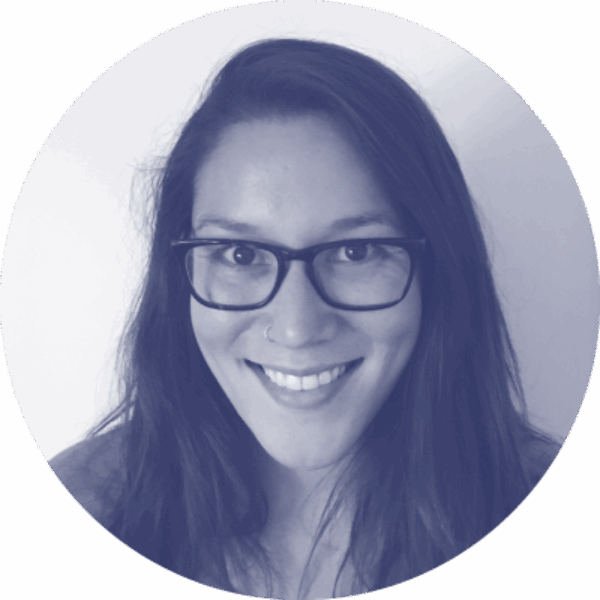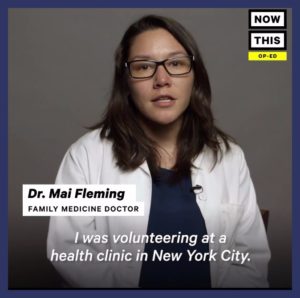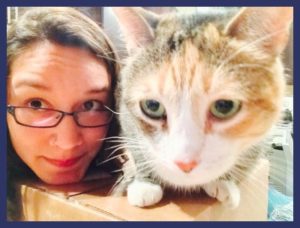Meet Our Advocates: Dr. Mai Fleming

What are your gender pronouns?
She/her/hers
Where are you from? I grew up in a suburb outside of Chicago, did all of my schooling on the East Coast between New York City and Philadelphia, and have since relocated to the Bay Area.
What’s your specialty or area of expertise? Family and Community Medicine, with interests in reproductive health, care across the gender spectrum, care for individuals experiencing homelessness, and addiction medicine.
What first inspired you to become a doctor?  Personal and family experiences highlighting the importance of primary and preventive care, a love for science and people, and early family planning volunteer work all mixed together to inspire and motivate me to become a doctor, and specifically an abortion provider. Furthermore, my undergraduate studies in Gender and Sexuality enabled me to realize that access to full scope reproductive health care including abortion care was key to fostering justice and equity for people across racial, gender, and socioeconomic spectrums, which further fueled my motivation to do this work.
Personal and family experiences highlighting the importance of primary and preventive care, a love for science and people, and early family planning volunteer work all mixed together to inspire and motivate me to become a doctor, and specifically an abortion provider. Furthermore, my undergraduate studies in Gender and Sexuality enabled me to realize that access to full scope reproductive health care including abortion care was key to fostering justice and equity for people across racial, gender, and socioeconomic spectrums, which further fueled my motivation to do this work.
What current policy issue especially motivates you to be an advocate? I have always focused on advocacy around policies that improve reproductive health access including expansion of medication abortion in primary care and on college campuses in California, fighting against misinformation campaigns by anti-choice groups and Crisis Pregnancy Centers, and focusing on language and wording to promote inclusivity especially among gender expansive patient populations. However, I must also particularly highlight the egregious mistreatment of our immigrant, refugee, and asylee communities at this current moment, and the lasting impact it will have on the lives of those individuals, children, and families. More than ever, it is imperative that the physician community speak out against these injustices and point to scientific evidence of the harms of childhood adverse events and post traumatic stress disorder in addition to the physical harms of detention and deportation especially with the elimination of medical deferred action.
How do you practice self-care? My version of self-care largely focuses on getting my brain out of the medical world for periods of time. My husband and I love outdoor activities, from hiking to camping to snowboarding. We try to get out into nature as much as possible to balance our busy lives. When home, I am an avid book nerd who is a part of four different book clubs, and a self-proclaimed crazy cat mom.
My version of self-care largely focuses on getting my brain out of the medical world for periods of time. My husband and I love outdoor activities, from hiking to camping to snowboarding. We try to get out into nature as much as possible to balance our busy lives. When home, I am an avid book nerd who is a part of four different book clubs, and a self-proclaimed crazy cat mom.
Who is your social justice hero? While it is difficult to pinpoint one individual who has impacted my understanding and practice of social justice work, I am incredibly thankful for anyone and everyone who is standing up against humanity’s injustices, large and small. As one of my closest friends always says: “Democracy is a verb,” and without full and meaningful participation, we can’t move forward. I would especially highlight my patients as a consistent source of inspiration in the work that I do. The amount of resilience that folks from marginalized and underserved communities have when faced against every hurdle and barrier that society can throw at them in order to not only survive, but thrive in their own lives, families, and communities is incredible, motivational, and commendable. They are my heroes, and to whom I owe the most gratitude.

